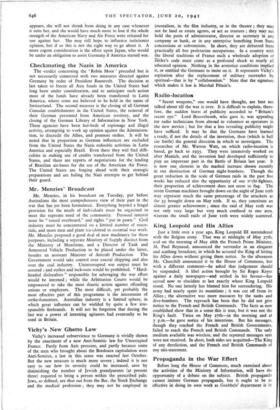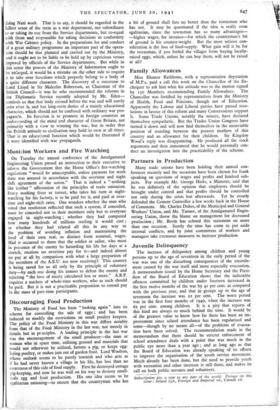Propaganda in the War Effort
Before long the House of Commons, much exercised about the activities of the Ministry of Information, will have the opportunity of a debate on the subject. British propaganda cannot imitate German propaganda, but it ought to be as effective in doing its own work as Goebbels' department is in 'doing Nazi work. That is to say, it should be regarded in the fullest sense of the term as a war department, not subordinate to or taking its cue from the Service departments, but co-equal with them and responsible for taking decisions in conformity with War Cabinet policy. In the preparations for and conduct of a great military programme an important part of the opera- tion should be that planned and carried out by the Ministry, and it ought not to be liable to be held up by capricious vetoes imposed by officials of the Service departments. But while in this sense the powers of the Ministry of Information ought to be enlarged, it would be a mistake on the other side to require it to take over functions which properly belong to a body of a quite different character. The discovery of a successor to Lord Lloyd in Sir Malcolm Robertson, as Chairman of the British Council—it was he who recommended the reforms in the Diplomatic Service recently adopted by Mr. Eden— reminds us that that body existed before the war and will surely exist after it, and has long-term duties of a mainly educational character, which should not be confused with ordinary war pro- pagancla. Its function is to promote in foreign countries an understanding of the mind and character of Great Britain, not primarily with a view to winning the war, but in order that the British attitude to civilisation may hold its own at all times. That is an educational function which would be frustrated if it were identified with war propaganda.



























 Previous page
Previous page